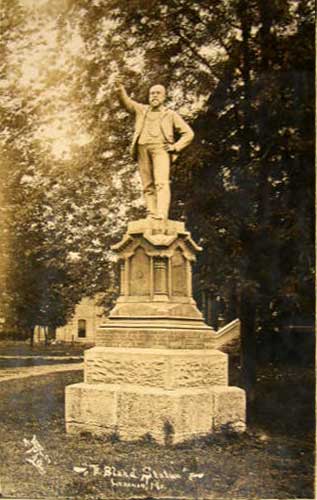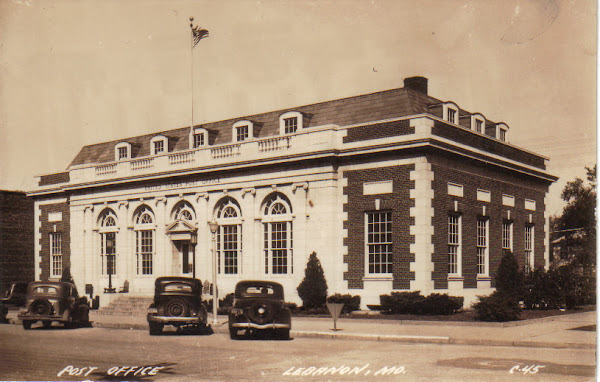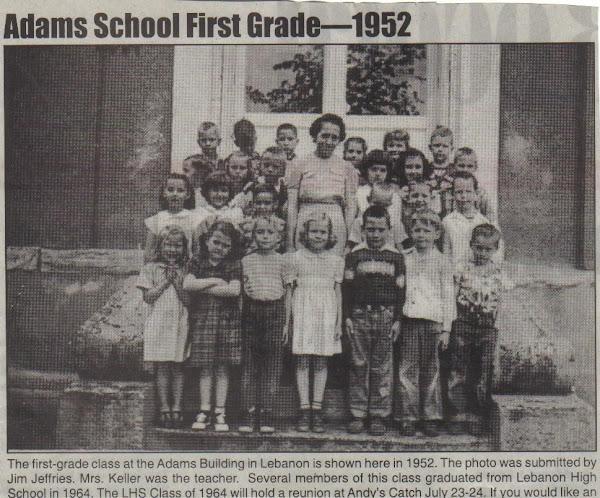This blogging stuff is new to me. So I was stumped when I received 2 emails in my mailbox from Bruce Barnes about the blog site because I expected them to show up on the site itself. I checked it out and they were listed as comments which could be clicked on and read.
So you blog-writers may want to post your comments as a separate post because it's easier for everyone to read. However, any way you do it is fine, just so long as we keep it going. If comments are posted as separate posts, we WILL have more pages of the blog to go through but I don't see that as being a problem.
I have many more photos to upload, just not a lot of time to do it right now. I would like to keep the blog going by commenting on Lebanon news and people - articles I'm reading in LDR - and other things I hear, just so more people will join and those already here will stay with it. Maybe I can do that on a nightly or "every-other-nightly" basis.
So far we have on here Sally Little, Bruce Barnes, Diane McVey Nuss, Sherman Davis.
Monday, July 2, 2007
Death of a much loved Lebanon historian
Kirk Pearce told me that Hazel McConnell passed away this weekend. She had written the Detherage Community News for the LDR for many years. She was also a member of the Laclede County Historical Society and was always very much interested in the history of this area. And I would not want to forget her faithfulness to her beloved church, Antioch Baptist.
She was 93, I believe she told me the last time we talked. I always enjoyed her quaint and old-school mannerisms of writing and speaking, especially her use of the word "motoring" when referring to driving someplace.
She was 93, I believe she told me the last time we talked. I always enjoyed her quaint and old-school mannerisms of writing and speaking, especially her use of the word "motoring" when referring to driving someplace.
Subscribe to:
Comments (Atom)
Current discussion on "Banishment during Civil War"
RE: [ourhistory] Banishment during the Civil War
Ann,
My gg-grandfather Ephraim Davis who was 33-36 at the time removed his family including my g-grandfather Alonzo (3 yrs old) and Harve (5 yrs old) to Illinois during the Civil War and returned afterwards. It is said he did this to protect his family, but on the return trip his wife and newly born daughter died and are buried near Rolla
I Googled ‘Banishment during the US Civil War” and found a couple of interesting notes on banishment
Note 1
Banishment to the South was a favored Yankee method of dealing with Southern sympathizers in their midst, though being a sympathizer did not necessarily mean being a spy. Many women were forced into exile under the threat of more severe punishment for offenses ranging from publicly denouncing an occupying army to actually giving information to the enemy. When Henrietta Barr's sister, Sarah Cotton, was arrested, Barr wrote in her diary:
"After 12 o'clock at night, Friday the 17th, Sarah was arrested and taken over the lines without a word of a trial. She was torn from her little children and threatened if she dared return that she would be `shot as a spy.' Comment is unnecessary."
Note 2
In response to widespread criticism of his suspension of the writ of habeas corpus and the banishment of Vallandigham, Lincoln wrote a long letter to Democratic Party leaders defending his actions. Lincoln declared that the regular civilian courts were inadequate during a rebellion. He claimed that those opposing the Unions cause endangered "the public safety." Ordinarily, he wrote, such people could not be arrested since criticizing the government was not a criminal offense. If such persons were arrested, they would undoubtedly be released on a writ of habeas corpus by a civilian court judge. The necessary solution, Lincoln argued, was to suspend the writ and lock up the troublemakers until the war ended.
As for Vallandigham, Lincoln charged that he was encouraging desertions from the Union army. "Must I shoot a simpleminded soldier boy who deserts," Lincoln asked, "while I must not touch a hair of a wily agitator who induces him to desert?"
After Vallandigham was banished to the South, his friends went to the U.S. Supreme Court in an attempt to convince the justices to hear the case. On February 15, 1864, the Supreme Court announced it would refuse to hear the case, saying that it had no authority to review the proceedings of a martial law court. While the bloody Civil War raged on, the Supreme Court decided it was not the time to challenge the power of General Burnside or his commander-in-chief, Abraham Lincoln.
Note 3
Rowland Family, Papers, 1844-1893, (C2244)1 folder(s)Includes letters from Robert A. Rowland to his wife Olive in Howard County, MO, while he was enroute (1849) and in California (1850) and during his imprisonment and banishment to Illinois during the Civil War. Also includes miscellaneous letters from other family members and newspaper article describing death of and memorial services for I.N. Rowland (1893).
Bill Henry
Ann,
My gg-grandfather Ephraim Davis who was 33-36 at the time removed his family including my g-grandfather Alonzo (3 yrs old) and Harve (5 yrs old) to Illinois during the Civil War and returned afterwards. It is said he did this to protect his family, but on the return trip his wife and newly born daughter died and are buried near Rolla
I Googled ‘Banishment during the US Civil War” and found a couple of interesting notes on banishment
Note 1
Banishment to the South was a favored Yankee method of dealing with Southern sympathizers in their midst, though being a sympathizer did not necessarily mean being a spy. Many women were forced into exile under the threat of more severe punishment for offenses ranging from publicly denouncing an occupying army to actually giving information to the enemy. When Henrietta Barr's sister, Sarah Cotton, was arrested, Barr wrote in her diary:
"After 12 o'clock at night, Friday the 17th, Sarah was arrested and taken over the lines without a word of a trial. She was torn from her little children and threatened if she dared return that she would be `shot as a spy.' Comment is unnecessary."
Note 2
In response to widespread criticism of his suspension of the writ of habeas corpus and the banishment of Vallandigham, Lincoln wrote a long letter to Democratic Party leaders defending his actions. Lincoln declared that the regular civilian courts were inadequate during a rebellion. He claimed that those opposing the Unions cause endangered "the public safety." Ordinarily, he wrote, such people could not be arrested since criticizing the government was not a criminal offense. If such persons were arrested, they would undoubtedly be released on a writ of habeas corpus by a civilian court judge. The necessary solution, Lincoln argued, was to suspend the writ and lock up the troublemakers until the war ended.
As for Vallandigham, Lincoln charged that he was encouraging desertions from the Union army. "Must I shoot a simpleminded soldier boy who deserts," Lincoln asked, "while I must not touch a hair of a wily agitator who induces him to desert?"
After Vallandigham was banished to the South, his friends went to the U.S. Supreme Court in an attempt to convince the justices to hear the case. On February 15, 1864, the Supreme Court announced it would refuse to hear the case, saying that it had no authority to review the proceedings of a martial law court. While the bloody Civil War raged on, the Supreme Court decided it was not the time to challenge the power of General Burnside or his commander-in-chief, Abraham Lincoln.
Note 3
Rowland Family, Papers, 1844-1893, (C2244)1 folder(s)Includes letters from Robert A. Rowland to his wife Olive in Howard County, MO, while he was enroute (1849) and in California (1850) and during his imprisonment and banishment to Illinois during the Civil War. Also includes miscellaneous letters from other family members and newspaper article describing death of and memorial services for I.N. Rowland (1893).
Bill Henry
Bennett Spring Hotel








.jpg)











.jpg)

